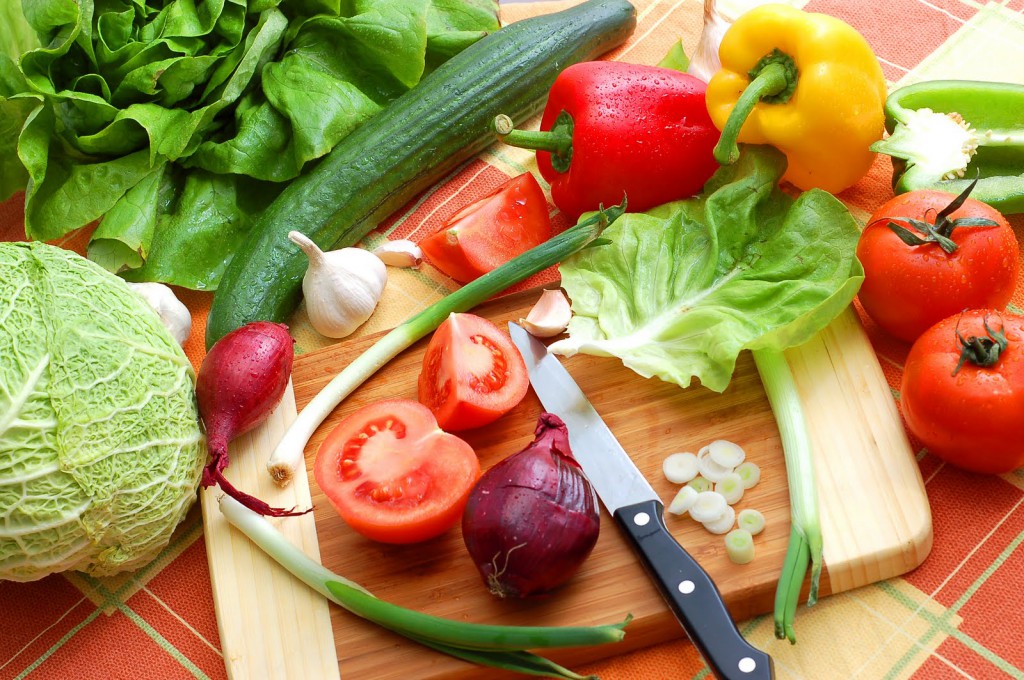Most people are familiar with the old adage “work smarter not harder,” but wouldn’t it be nice to be able to do both? You’ve probably also heard the adage “time is money.” Well, logic dictates that to make the most money in the least amount of time you need to be able to perform tasks in an intelligent manner and work with diligence and vigor.
The best way to utilize your full mental and physical potential is to develop dietary habits that will ensure you’re consuming all of the ingredients needed to maximize energy levels throughout the day:
1. Develop a Water Drinking Schedule
When you’re fully hydrated all of your bodily systems can function optimally. On the other hand when you’re dehydrated your creativity, comfort, and energy levels all suffer. Nutritionists recommend a minimum daily water intake of about 64 ounces, or eight 8-ounce glasses per day, which is a good rule of thumb, but if you really want to treat your body like a well-maintained F-1 racecar then you’ll want to make sure you’re replenishing fluids at strategic points in your day.
- Two in the morning– Start by taking 2 glasses in the morning – one before and/or during breakfast and the other after eating. These “starter” glasses will jumpstart your digestive system and make you feel more alert.
- One at brunch – Threehours later drink another glass of water at around brunch time.
- Two at lunch – Three hours after that drink two glasses of water – one before and/or during lunch and one after eating.
- One in the afternoon – Three hours after lunch drink another glass.
- Two at dinner – Drink one glass before and/or during dinner and the other glass afterwards.
Notes: Since you’re also consuming water in the foods you eat this schedule would actually ensure that you get more than the recommended minimum of 64 ounces, but it is better to be slightly over-hydrated than to be dehydrated. If your urine is not completely clear then you’re not getting enough water.
2. Snack on Fruits Between Tasks
Eat a piece of fruit after finishing each task or assignment, or whenever you feel your energy levels declining. Fruits contain sugars and vitamins that can be more readily absorbed and utilised than those contained in energy bars or candy bars.
The complex carbohydrates in fruit give the body storable energy that lasts much longer than the short-lived ‘boost’ you get from simple carbs found in bread, pasta, or refined sugar, which is typically followed by a “crash” that leaves you feeling miserable and tired. Furthermore, studies have shown that eating more fruits and vegetables increases optimism and fights depression, thereby leading to a more productive work mentality.
3. Avoid Excessive Starch and Meat During Work Hours
While starches and meats may make you feel full, giving you the impression that you’ve been nutritionally satisfied, in reality that full feeling is just an indicator of how difficult the food is to digest. If you’ve ever pigged out at a buffet before you know how tired you can get from the burden of digestion.
When you’re trying to get things done in a timely and effective manner you need all of your energy devoted to brainpower and decision-making, not the breaking down of fats, proteins, and simple carbohydrates. This is not to say that you should cut meats and starches out of your diet completely – they have their place in a balanced diet – but it is best to save the harder-to-digest foods for times when you have at least an hour to relax and digest (i.e. dinner time or an extended lunch break).
4. Trade in Coffee and Soft Drinks for Tea and Juice
The average “employee” drinks a cup or two of coffee in the morning to help themselves “wake up” and then at work they have more coffee, or any energy drink, or a soda during their break at some point in the day. Then people wonder why they feel exhausted when they come home in the evenings and have no energy left to start their own business – they’re burnt out not only because of the effort they put into working but also because they’ve been loading up on “crash and burn” stimulants. As an under-30-CEO, or an aspiring one, you’re probably not a “worker ant,” so why should you follow suit?
If you want sustained energy that offers more than an acute boost you’ll need to trade in the addictive and deleterious caffeine and high fructose corn syrup for actual vitamins and “good” sugars. And by fruit juice we’re referring to juice extracted from fresh fruit, not the conventional store-bought carton of flavored beverage loaded with refined sugars and relatively little fruit juice concentrate.
Herbal teas sweetened with honey are also excellent mood enhancers and mind revitalizers. You’ve already taken the initiative to become self-employed, so why not embark on another self-sufficiency project and maintain your own tea herb garden?
Do you already eat certain foods or maintain dietary habits that help you stay focused and productive? If so feel free to share them in the comments below.
Ian Chase is a debt solution professional with www.solvemydebt.co.uk one of the UK’s debt recovery firms. Over the years Ian has found that directors tend to ignore the effects stress can have on their physical and professional wellbeing. Here he offers sound advice on staying healthy for peak performance.
Image Credit: lucasjamespersonaltraining.com





